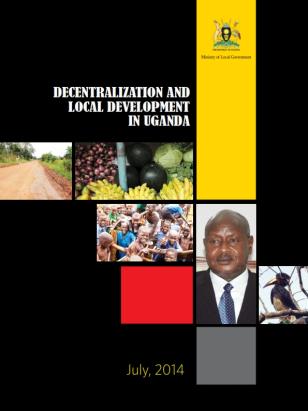Decentralisation and Local Development in Uganda

Decentralisation and Local Development in Uganda
November 19, 2015
Decentralisation and Local Development in Uganda is the first publication of the Ministry of Local Government outlining the key milestones and achievements since 1992 when the Decentralisation policy was launched.
The Decentralisation policy was introduced in the country more than 20 years ago with the main objective of empowering people, democratise state power and facilitate modernisation of our communities. This was after realising that the centralised approach to management of public affairs and development planning that was adopted in Uganda at the time of independence had not been effective in reducing poverty, improving people’s welfare and delivering good governance.
Decentralisation does not only empower people but is also meant to speed up development and improve the quality of their lives. Furthermore it enhances transparency and accountability in Local Governments to promote good governance and participatory democracy. A wide range of powers, responsibilities and functions have been transferred to District Local Governments and Lower Local Councils.
The process of promoting decentralisation is continuous and has been supported by various development partners in Uganda including the United Nations Development Programme (UNDP).
This publication highlights its history, successes and challenges over the last twenty years.

 Locations
Locations

